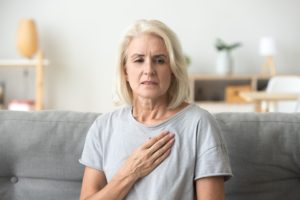 Living in a cold climate isn’t cheap. You’ve got to pay for heat and an entire wardrobe of thick, expensive clothing to keep you warm. But what you might not realize is that the cold and dark can also tax your health in a way that can prove quite costly.
Living in a cold climate isn’t cheap. You’ve got to pay for heat and an entire wardrobe of thick, expensive clothing to keep you warm. But what you might not realize is that the cold and dark can also tax your health in a way that can prove quite costly.
One of the keys to healthy aging is muscle strength. Being strong enough to perform daily tasks like carrying groceries, getting up from a seated position, maintaining balance, and have some resilience against the occasional bump along the way can all increase your quality of life, promote independence, and limit the risk for falls and fractures.
Advertisement
Resistance training and eating enough protein can be done at any time of year, but access to adequate vitamin D can be limited by climate.
According to findings from a new study published in Clinical Interventions in Aging, vitamin D plays a vital role in protecting and promoting skeletal muscle function.
A substantial difference was noted between participants with adequate vitamin D and those that were deficient. They found that muscle weakness was doubled in vitamin D deficient participants (40.4%) compared to those with adequate blood levels (21.6%). Vitamin D deficiency was also associated with a significant decrease in muscle performance.
The best source of vitamin D is sunshine, but with short days and layers of fabric on your body, good luck finding an opportunity to absorb it. Finland, a country with cold dark winters, has been able to virtually eradicate vitamin D deficiency through food fortification policies (much like the United States did with iodine in the 1920s).
Of course, if you don’t live in Finland, you’ll need to think about ways to boost your vitamin D exposure if you’re interested in the benefits of strong, functional muscle. You can start by selecting vitamin D fortified food products like juice, milk, and cereals. Supplementation is also available, and there are also trace amounts of vitamin D in oily fish like salmon, egg yolks, and mushrooms.
You may need to add the cost of vitamin D to your winter budget, but it has the potential to save you from the biggest cost of all: your livelihood.
